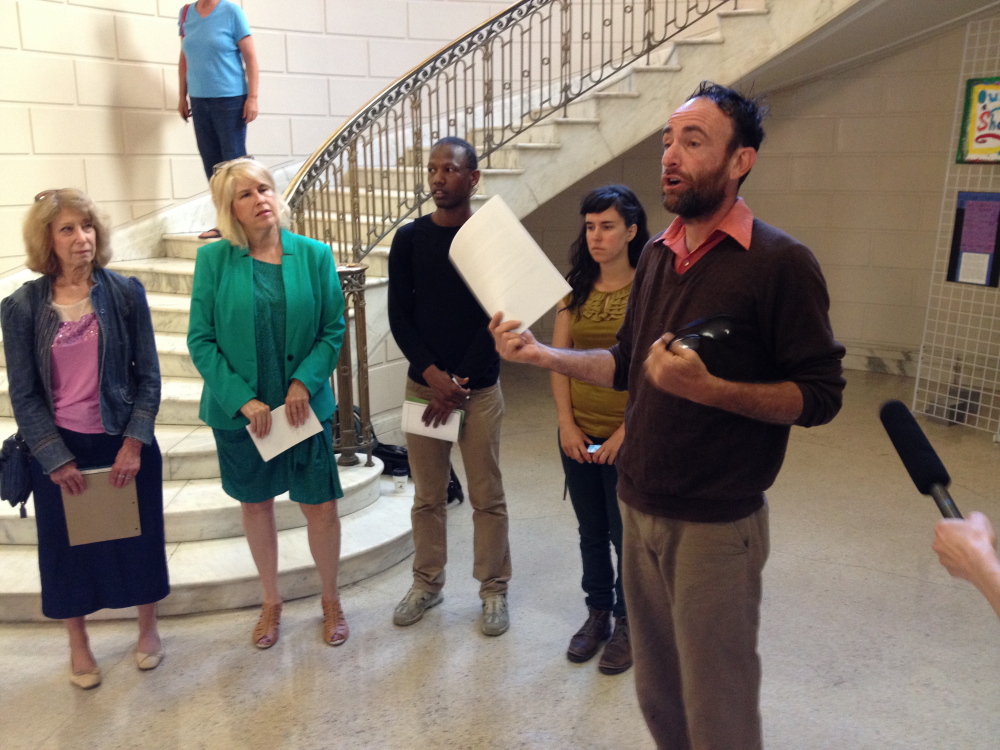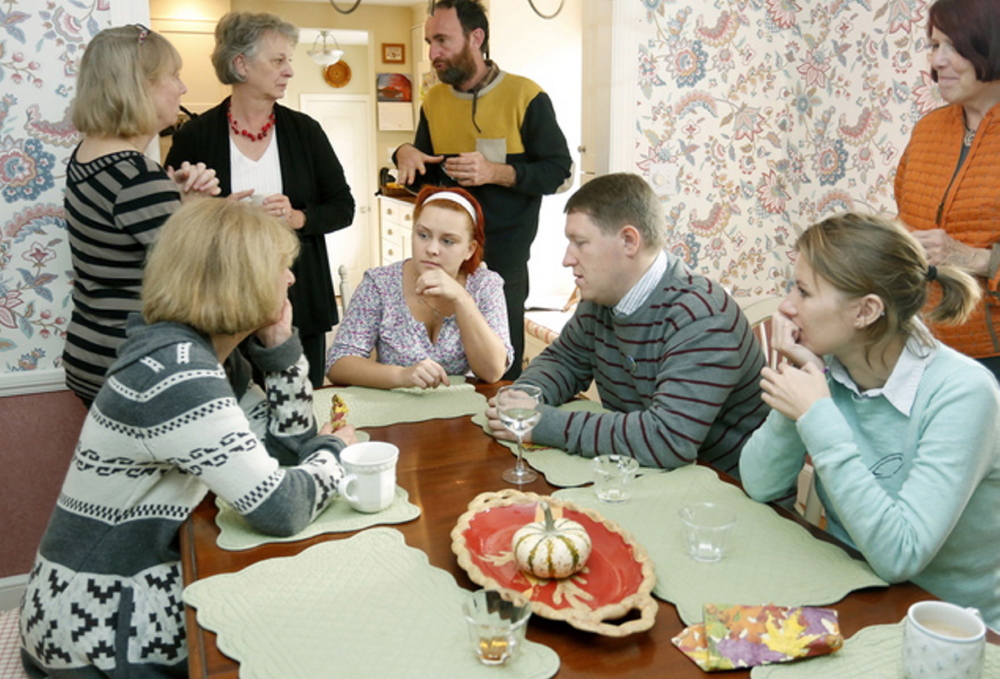Activists launched a campaign Monday calling on the city of Portland to suspend ties with government officials in Portland’s sister city in Russia because of their treatment of lesbian, gay, bisexual and transgender people.
Meaghan LaSala, a University of Southern Maine student and a member of the local LGBT fundraising organization Sub/Merge, is an organizer of the campaign, which includes an online petition and statements of support from community groups.
“By putting pressure on the city of Portland to suspend all sister city visits from Russian official delegates, we can send a strong message that the harassment and discrimination against LBGT people in Russia must end,” LaSala said in a news release. “Portland takes pride in its status as an LGBT-friendly city and should end its official tolerance of the human rights abuses being committed by its sister city Arkhangelsk.”
But several city councilors were skeptical that shutting out Russian officials during sister city exchanges would produce better policies abroad.
Mayor Michael Brennan said discriminatory policies and behavior in Russia are coming from federal, not local, governments and institutions.
“I appreciate their concern for their colleagues in Russia,” Brennan said. “At the same time, I met with (LGBT) people when they came from Russia, and they made it clear at that point they thought we should continue to maintain the sister city relationship and to continue that dialogue.”
Monday’s campaign announcement at City Hall coincided with a weeklong celebration for Portland’s LGBT community, which will culminate in the Portland Pride parade on Saturday.
Rob Lieber, another organizer of the effort to curtail Portland’s sister-city relationship, said the group plans to collect signatures through Pride Week in Portland.
The activists want peer-to-peer exchanges to continue, but are calling on Portland officials to stop accepting visits from, and posing in photos with, Russian government officials.
City Councilor David Marshall said he is sympathetic with the group’s concern but he believes the city can better influence Russian leaders by sharing its policies on ending discrimination and allowing gay marriage.
“That’s an important policy for us to stand behind and show to others,” Marshall said.
Portland and Archangel, a city of about 350,000 people in northwestern Russia, have been sister cities since 1988 and regularly send and receive delegations. Archangel recently pioneered anti-gay laws that were adopted throughout Russia.
Two board members, including Oleg Klyuenkov, from Rakurs (Perspective, in English), a group that supports Archangel’s LGBT community, visited Portland in November and met with members of Portland’s LGBT community.
Now, Klyuenkov is being harassed and pressured to resign from his job because of his “civic activism” at Northern Federal University, according to activists in Maine.
Portland sent a delegation, led by City Councilor Edward Suslovic, to Archangel in April, at a time of harassment of lesbian, gay, bisexual and transgender people and the Russian takeover of Crimea in Ukraine.
At the time, Suslovic defended the city’s continued participation in Sister Cities International, and Lieber told the Portland Press Herald that he supported the delegation’s trip to Archangel because it included a visit to Rakurs’ headquarters.
After Monday’s announcement, Suslovic said he doesn’t believe that suspending ties with Russian officials is the best way to effect social change. He noted that the sister city relationship began during the Cold War and was not an endorsement of communism.
“As long as you have open, honest discussion, that at least holds the hope of progress,” Suslovic said.
When an official delegation from Archangel visits Portland, Suslovic said, he “hammers” at the point that Portland’s vibrant economy is linked to its status as an open and affirming community.
Lieber, who helped plan Klyuenkov’s visit, said trips to the U.S. are coveted by officials in Archangel. “We clearly see that their visits and attention given to them by the city of Portland officials help legitimize their power,” he said.
Lieber said Klyuenkov and two other Rakurs members – Director Tatiana Vinnichenko and board member Olga Pospelova – have been interviewed three times by a Russian prosecutor. Each time, they have been accused of being foreign agents, he said.
“This intimidation was done in tandem with grossly slanderous and well-placed articles in Arckangelsk newspapers and blogs,” Lieber said. “This is a witch hunt and it must end now.”
Sister Cities International, the nonprofit, nonpartisan umbrella group for the Portland-Archangel relationship, has a policy of maintaining relationships during political disputes.
The Sister Cities network includes 76 U.S.-Russian sister city partnerships, said the group’s spokeswoman, Megha Swamy.
Several U.S. communities have considered severing ties with Russia, Swamy said, but only Lansing, Michigan, has suspended its sister city relationship, with St. Petersburg, Russia.
Lieber said the current administration in Archangel ranked last among 83 Russian regions reviewed by the St. Petersburg Political Fund, a Russian think tank, because of “political and corruption scandals.”
Suslovic said members of Archangel’s delegation who are being harassed and intimidated haven’t contacted him to ask that the city change its sister city relationship.
Lieber, however, said he communicates with his Russian friends regularly and is deliberately keeping them out of the effort in Portland. “I am leaving them out of this for their safety,” he said.
Send questions/comments to the editors.




